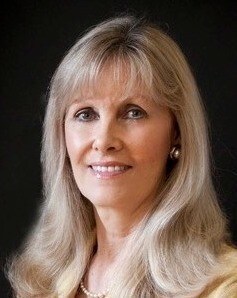
Kristine Pearson
Founding Chief Executive Officer of Lifeline Energy, Kristine Pearson understands that education and information access while addressing energy poverty are key levers for sustainable development and economic growth, particularly for women and girls. Since 1999, Kristine has worked across Africa integrating power-independent MP3 players and radios into communication initiatives in health, agriculture, education, climate change, and complex emergencies. American-born, she emigrated to South Africa in 1989, built a successful consultancy focusing on the development of women in business, which led to an executive position at a South African banking group. Kristine served for 8 years on the Women's Leadership Board of Harvard's Kennedy School of Government and was honoured with the James C. Morgan Global Humanitarian Award in 2005. Time magazine named her a Hero of the Environment.

- Visit their website
- Lifeline Energy
- Contact via
- Model
- Hybrid Social Enterprise
- Sectors
- Climate Crisis; Agriculture, Food and Beverage; Education
- Headquarters
- South Africa
- Areas of Impact
- Africa
Lifeline Energy
Across sub-Saharan Africa, radio remains the most important mass communication medium, transcending literacy, poverty and geography. The non-profit Lifeline Energy, in collaboration with its for-profit subsidiary Lifeline Technologies, designs, manufactures and distributes fit-for-purpose solar and human-powered media players and radios for community and classroom listening.
Lifeline products can accommodate 50 listeners, enabling large-scale and cost-effective initiatives. Since 1999, 600,000 power-independent MP3 players and radios have been distributed, impacting more than 20 million lives. Most products are procured by institutional buyers for large learning or communication projects, although individuals and family foundations also contribute. Its ground-breaking Lifeplayer MP3 is the first-ever media player, 5-band radio and recorder for humanitarian use. Using MicroSD cards, the Lifeplayer stores up to 64GB (960 hours) of audio content, including books, and can be easily updated via smart phones or the internet. It records live voice or radio broadcasts.
Lifeline collaborates with content providers, broadcasters and community radio stations, which produce local language content for communication initiatives. Lifeline leverages existing traditional structures as community-driven initiatives spur development, enhance health outcomes, and even save lives in some of the most far-flung places on the continent. To ensure maximum use of its products, Lifeline offers distribution and capacity building training. Tens of thousands of Lifeplayers are being integrated into teacher training, educational, climate change and agricultural initiatives in sub-Saharan Africa.
Its power-independent Prime multi-band radio is widely used to support community radio broadcasts. The Prime and its predecessor, the Lifeline radio, have been included in UNICEF's long-running School in a Box programme. Lifeline also has a range of portable radio-lights, which are used in emergencies including for displaced populations escaping conflict in South Sudan, the West African Ebola crisis, the Philippines after Typhoon Haiyan, and Japan following the Fukushima catastrophe. Lifeline Energy has secured the support of many leading institutions and individuals.
awardees
Our awardees

David Yeung

Tom Szaky
